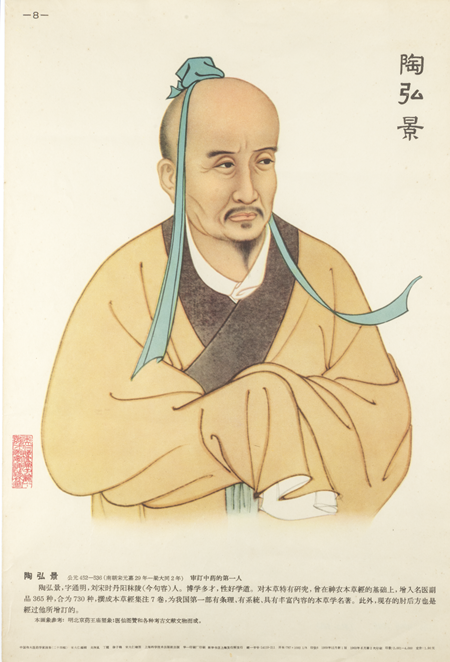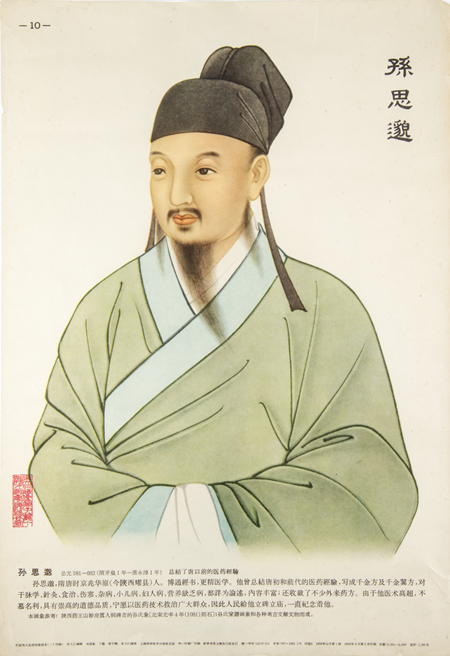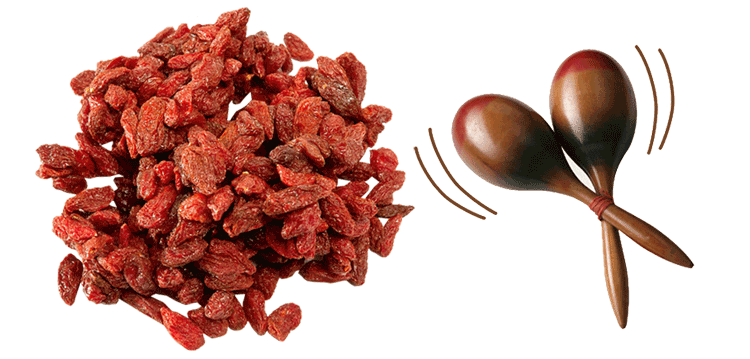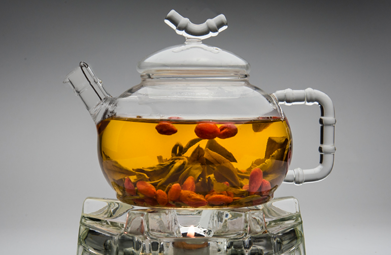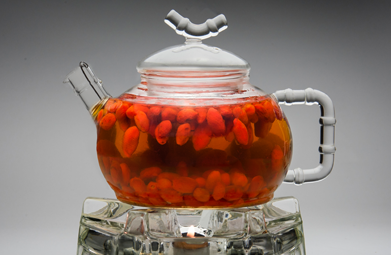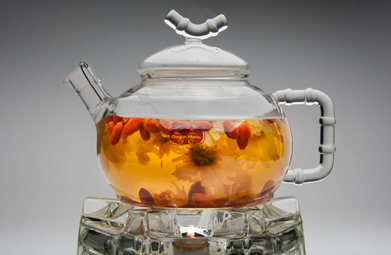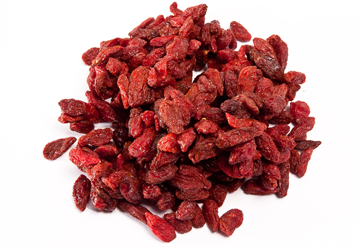Why Heaven Mountain®?
 Left: Snow and glacial runoff from Heaven Mountain. Right: 3000 hours of sunlight per year.
Left: Snow and glacial runoff from Heaven Mountain. Right: 3000 hours of sunlight per year.
Soil
The virgin land of the Gobi Desert has little vegetation. It has a very high content of alkaline minerals. The pH level of the soil can be as high as 8.7 (50 times more alkaline than neutral) and the soil salt content can reach 1%. Few plants can survive in this kind of harsh environment. Goji, however, being an extremely adaptable plant, thrives here.
Daylight Duration
Xin Jiang province has the longest daylight duration among all provinces in China (Tibet included). It averages 2550 to 3300 hours of sunshine per year. The intensive sun light allows for much more productive photosynthesis in the Goji plants, leading to more flesh, sweeter taste, and naturally, higher content of active ingredients such as Lycium Polysaccharides (LBP).
Precipitous Daily Temperature Fluctuation
Another unique weather characteristic of Xin Jiang is the precipitous temperature fluctuation between day and night, usually as much as 36 to 45 °F within a single day. The locals joke that in Xin Jiang, no traveling is necessary in order to experience the four seasons within one day. It is quite common that you start the day with a winter jacket, strip down to a silk shirt at noon, then at night, you can enjoy their famous watermelons, next to a bonfire, that is.
It is Heaven Mountain Goji’s superb adaptability that makes it a highly revered adaptogenic, stressfighting tonic herb.
The Ministry of Agriculture of the People’s Republic of China has officially certified Heaven Mountain goji berries as Di Tao.
All plants are the product of their growing environment and conditions. Different regions have their distinctive make-up of water, soil, sunshine, climate, and biological distribution. The varying methodologies adopted by different regions in their cultivation, collection, and final preparation of the herbs further differentiate the herbs from different sources. The Di Tao source of an herb is gradually established through the historical use of the herbs. By documenting how herbs from different origins differ in their pharmacological effects on the human body, the regions or sources that produce the most desired results have slowly come to be recognized as the authentic genuine source, Di Tao, both by common knowledge among the practicing herbalists as well as by government supported official recognition in the materia medica.
Water
As part of the enormous Gobi Desert that covers southern Mongolia and northern China, Xin Jiang receives little to no rain each year. Every drop of water in the growing fields is derived from the melted snow and glacial runoff from the pristine Heaven Mountain. This water is pure and structured – it is nature’s ultimate irrigation system.
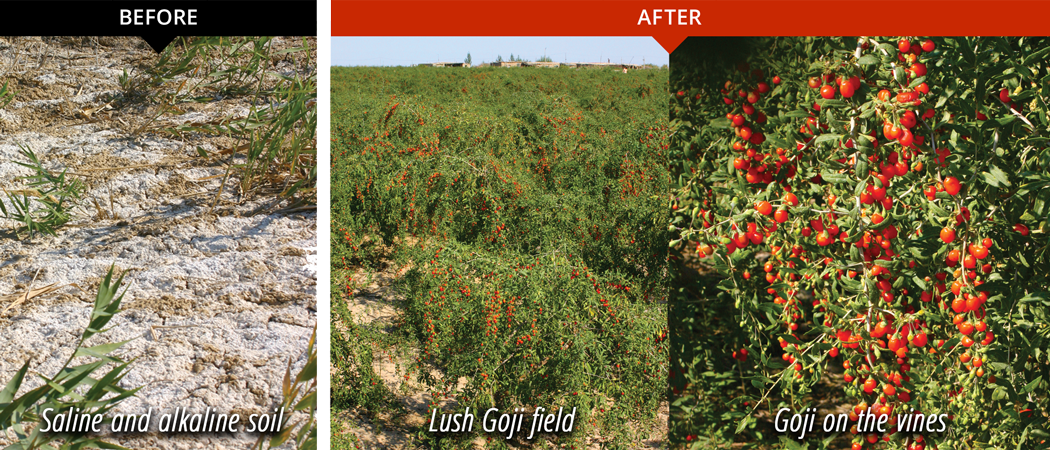 Heaven Mountain® Goji trees are being planted in northern and western China as part of a government supported program to reverse desertification.
Heaven Mountain® Goji trees are being planted in northern and western China as part of a government supported program to reverse desertification.
What does the fruit of a hardy plant such as Heaven Mountain® Goji mean to us humans?
We are what we eat. The plants’ bio-chemistry transports to our body when we consume it. A Ginseng root grown in the mountain is hundreds or even thousands of times more expensive than a cultivated Ginseng root because the wild root has to endure a tremendous amount of distress in order to survive in the wilderness.
The result? Survival of the fittest. The more hardship a plant endures, the more complex, complete and balanced its phyto-chemical profile becomes. It is Heaven Mountain® Goji’s superb adaptability, the ability to thrive in its extremely harsh environment that makes this little red berry a highly revered adaptogenic, stress-fighting tonic herb.
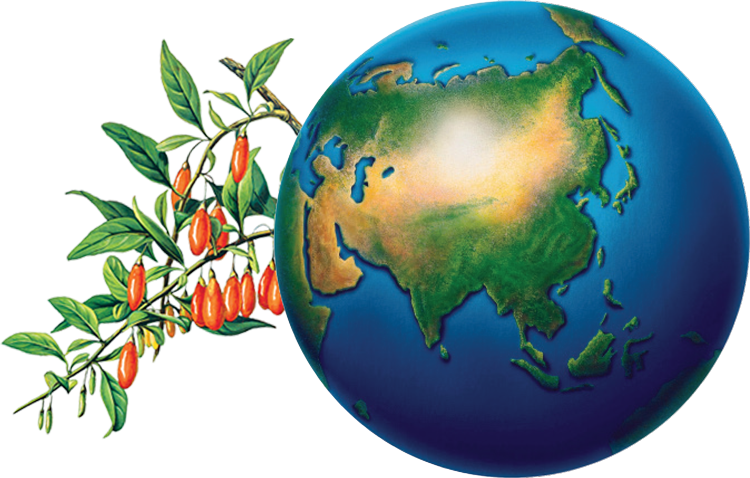 Heaven Mountain® Goji Berries, a GREEN hero in reversing desertification.
Heaven Mountain® Goji Berries, a GREEN hero in reversing desertification.
Not only are the Heaven Mountain® Goji Berries good for you, they are good for the Earth as well.
Because of Goji’s superb adaptability, it thrives where other plants fail to survive. The Goji plants are drought tolerant, cold and heat resistant, and they can endure, and even flourish in, saline and alkaline soil. Goji plants have highly developed root branches which bind firmly with the soil. Many Goji trees are being planted in northern and western China as a wind breaker, sand binder and soil ameliorator as part of a government supported program to reverse desertification.
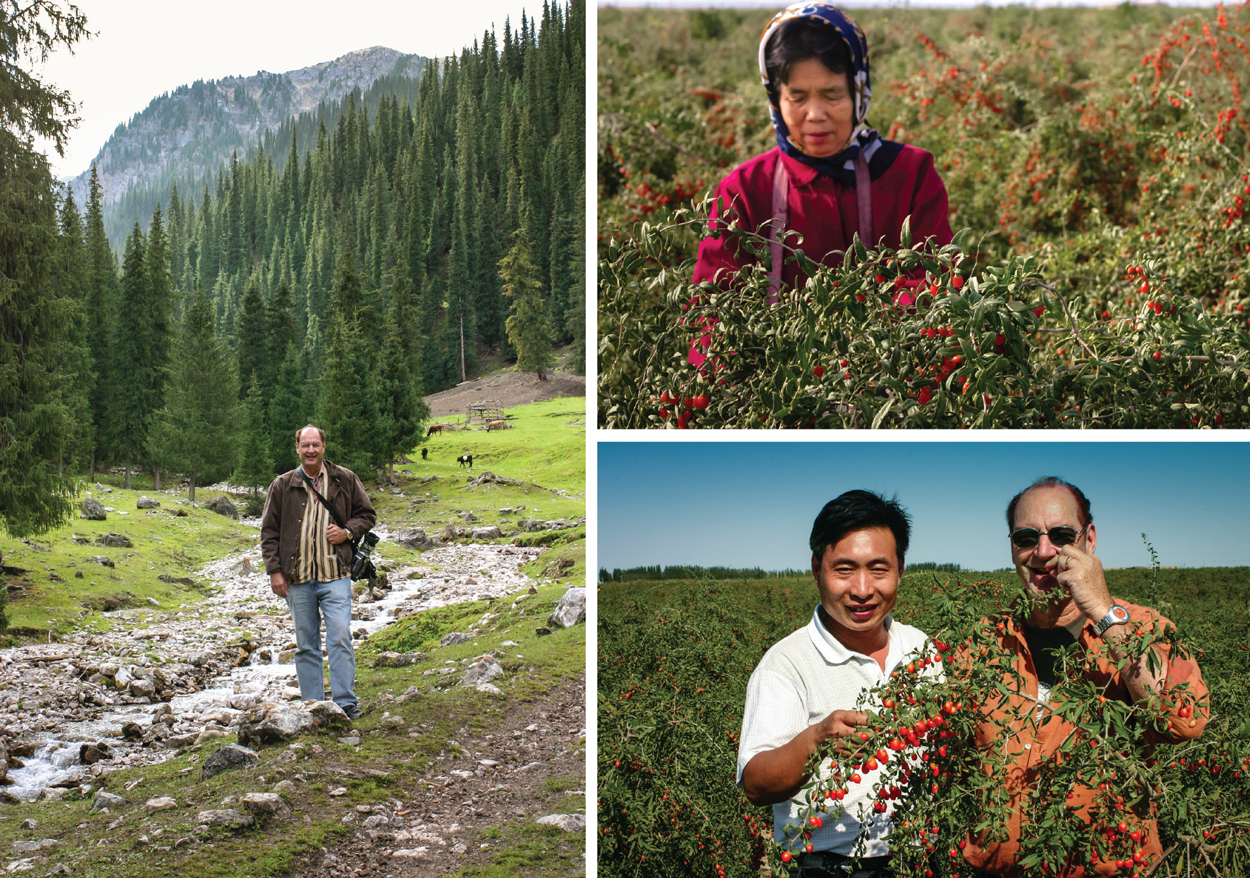


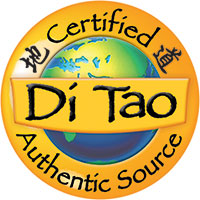



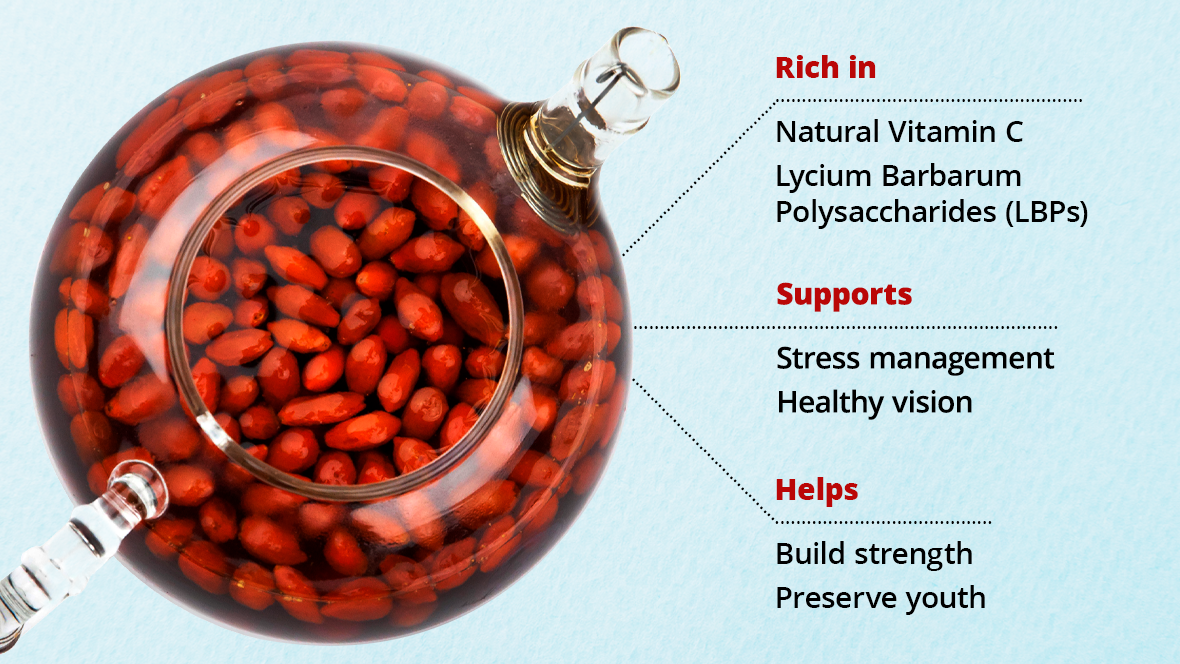

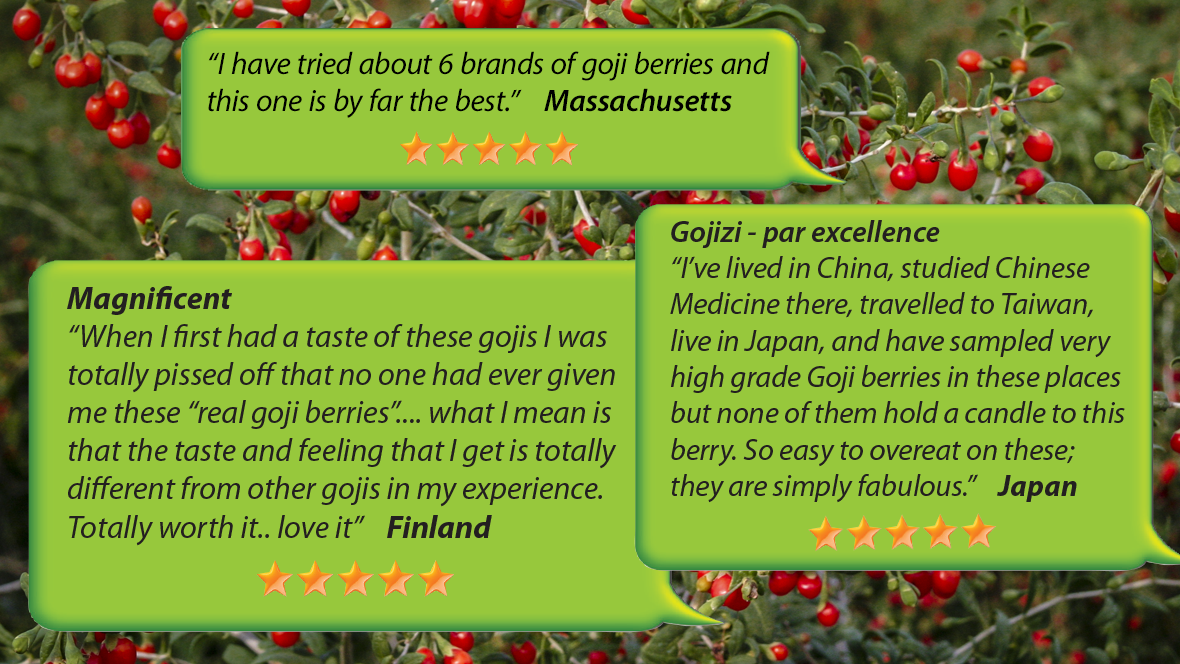
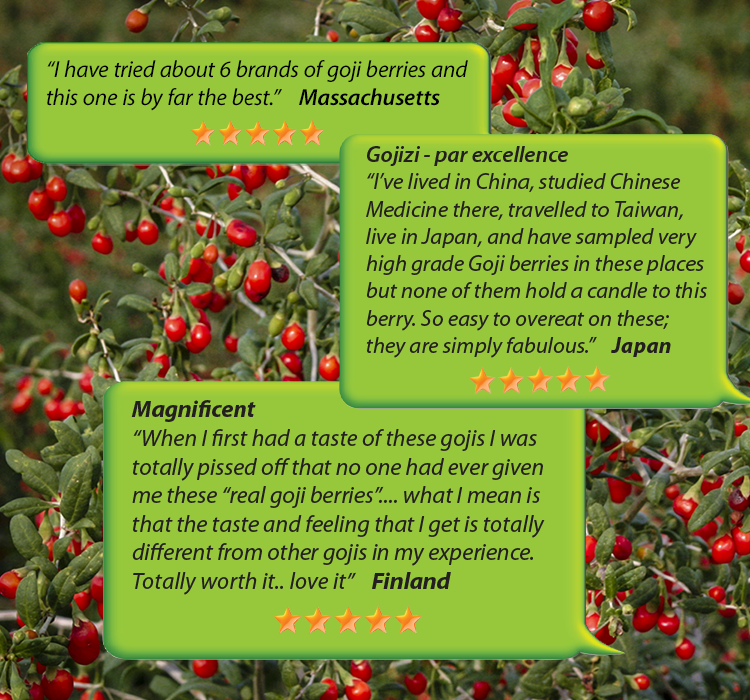
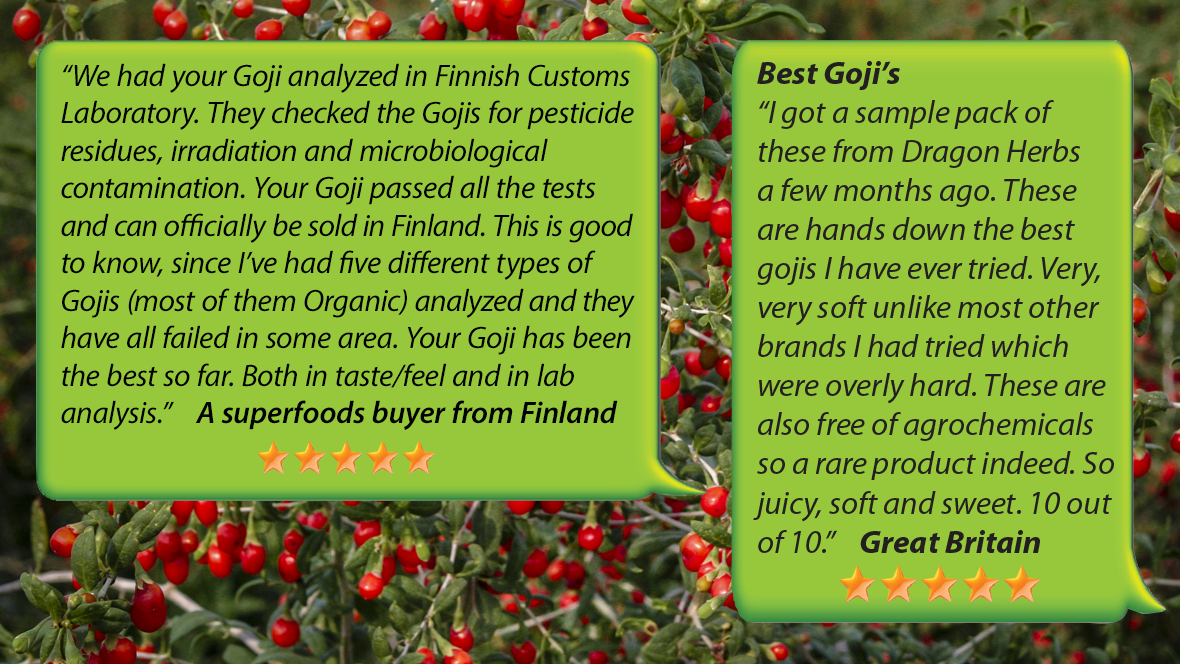
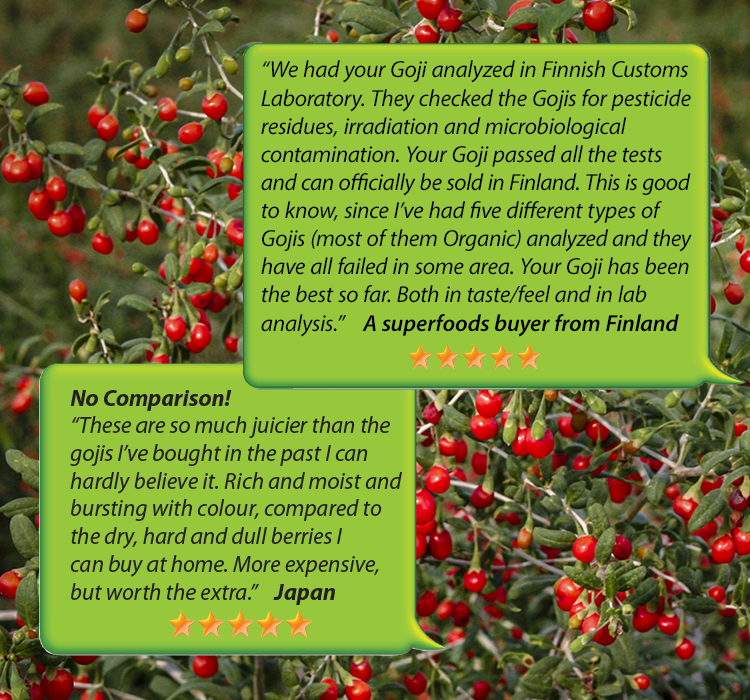
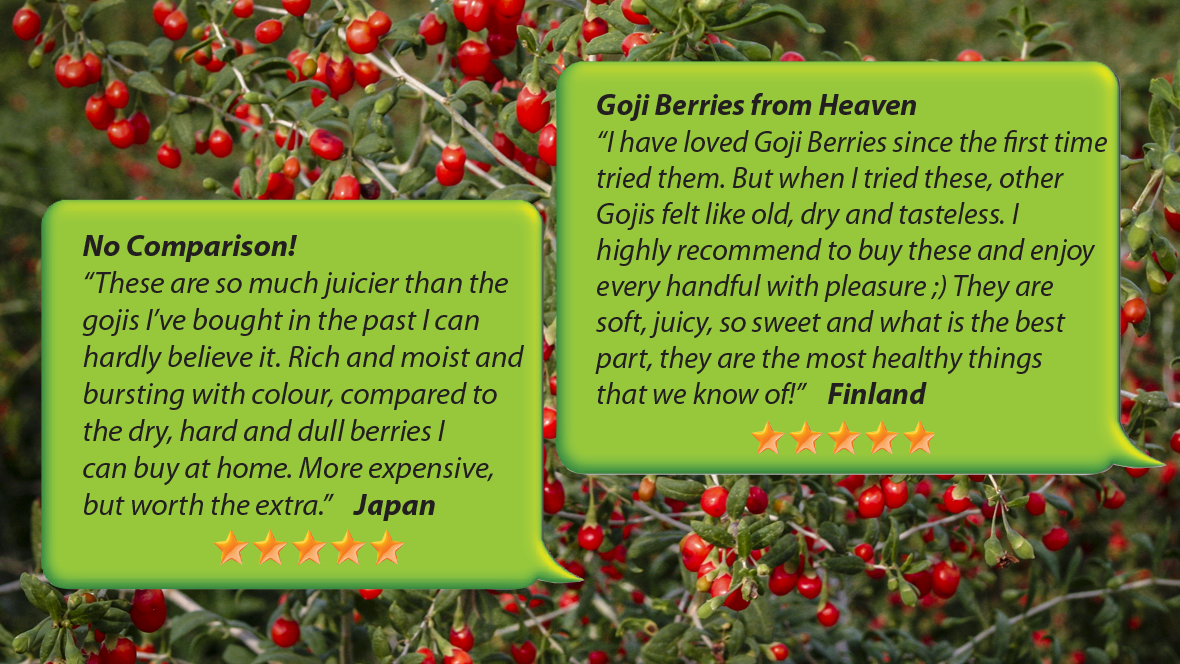
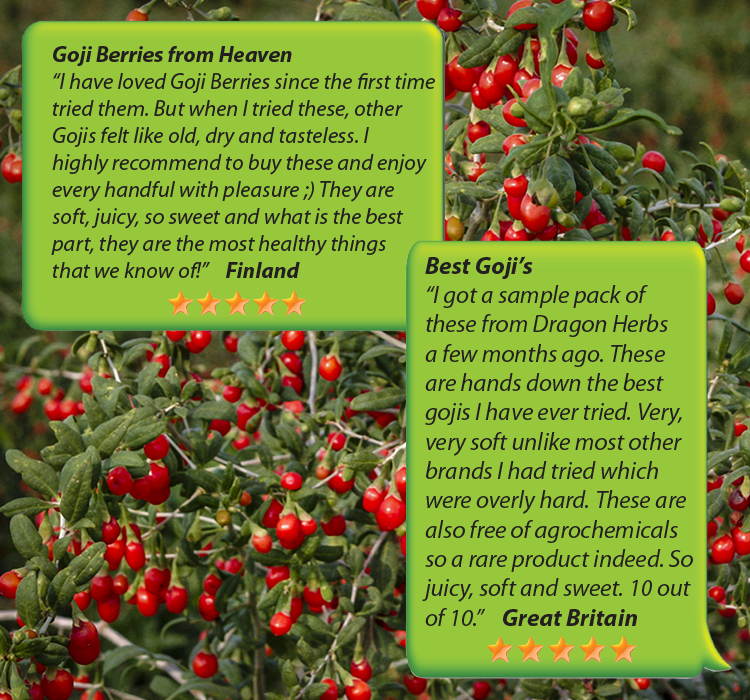

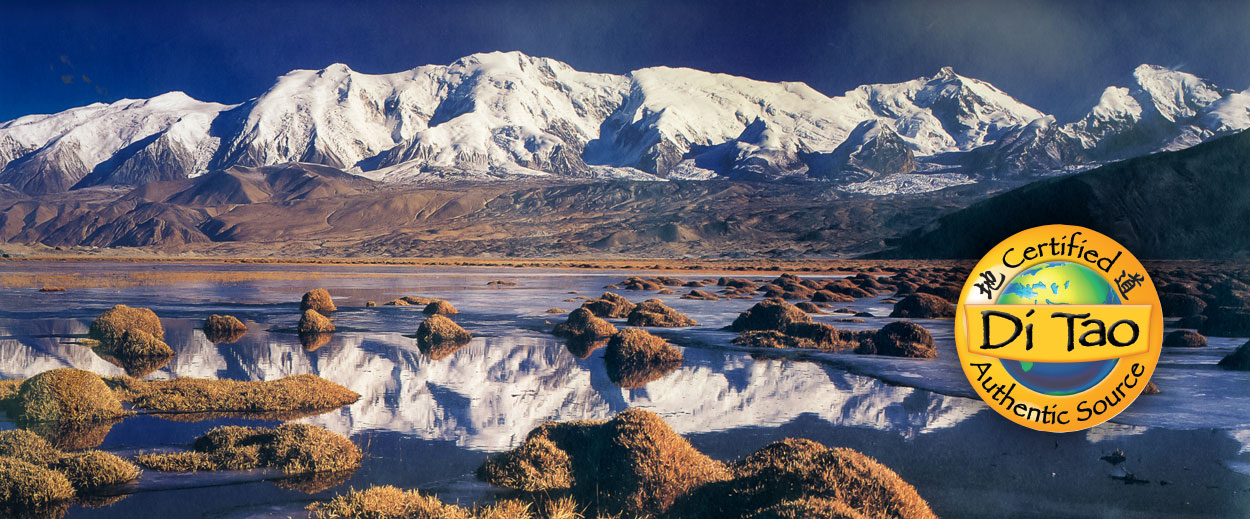



 Heaven Mountain® Goji Berries, a
Heaven Mountain® Goji Berries, a 
